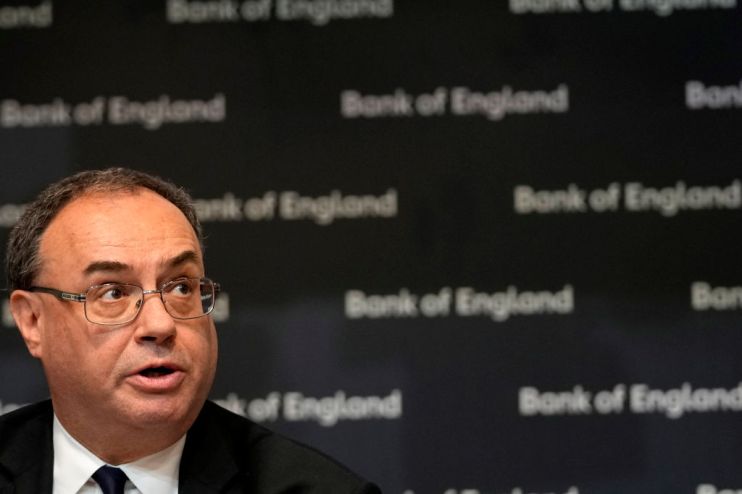UK hurtling toward recession on double-digit cost of living squeeze, Bank of England warns

The UK is hurtling towards a recession sparked by households being gripped by the tightest cost of living squeeze since the early 1980s, revealed fresh forecasts by the Bank of England today.
The economy will struggle to eke any growth for most of next year, dragging the UK into a 0.25 per cent contraction in 2023 and in effect tipping the country into a slow burning recession.
The fresh forecasts are among the gloomiest since the financial crisis sent shockwaves through the global economy and illustrate that Britain is being ensnared by a tough bout of stagflation.
Bank governor Andrew Bailey warned that the economy will “slow sharply” due to soaring energy prices eroding households’ spending power.
Inflation will peak at just over 10 per cent in the final months of this year, driven by the cap on energy bills rising 40 per cent in October to account for elevated wholesale gas prices caused by the war in Ukraine.
That would be the quickest price acceleration since the early 1980s and five times more than Threadneedle Street’s two per cent target.
In response to accelerating prices, the Bank voted unanimously to hike rates 25 basis points to a 13-year high of one per cent. Some rate setters favoured a steeper rise.
An expected pull back in consumer spending in response to living standards eroding at one of the fastest rates since records began in the mid 1960s prompted the gloomy conclusions.
Joblessness in Britain will rise in every quarter until 2025, peaking at around 5.5 per cent.
Even after the economy emerges from the slump, growth barely tops 0.6 per cent over the next three years.
The pound tanked on the news, while London’s FTSE 100 barely finished higher.
The Bank’s forecasts are based on an assumption interest rates reach market expectations of 2.5 per cent by the middle of 2023.
Bailey urged companies to consider “hardship” being heaped on households when setting executive pay.
The governor drew sharp criticism earlier this year when he asked workers to temper pay demands despite being hit by a historic cost of living crunch.
He said he will wave a rise on his £575,000 salary this year.
At the beginning of this year, the world’s top forecasters were upbeat about the health of the UK economy. However, a steep inflation upshot has led the Bank of England, Office for Budget Responsibility and the International Monetary Fund to cut their growth projections.
The historic hit to real incomes is likely to strengthen calls for chancellor Rishi Sunak to ramp up support for households to shield them from the energy price shock.
The downbeat projections come as voters in England, Scotland, Northern Ireland and Wales are heading to the polls for local elections today.
Rate setters – including governor Andrew Bailey – voted in 6-3 in favour of hiking rates 25 basis points to one per cent, with the three dissenters favouring sending borrowing costs 50 basis points higher.
The Bank also announced it has started drawing up plans to sell bonds off its around £840bn balance sheet.
Yesterday, the US Federal Reserve reined in policy quicker than usual to get on top of the worst stateside cost of living rate since the early 1980s, with chair Jerome Powell signalling another steeper rate rise is “on the table” at the central bank’s next meeting.